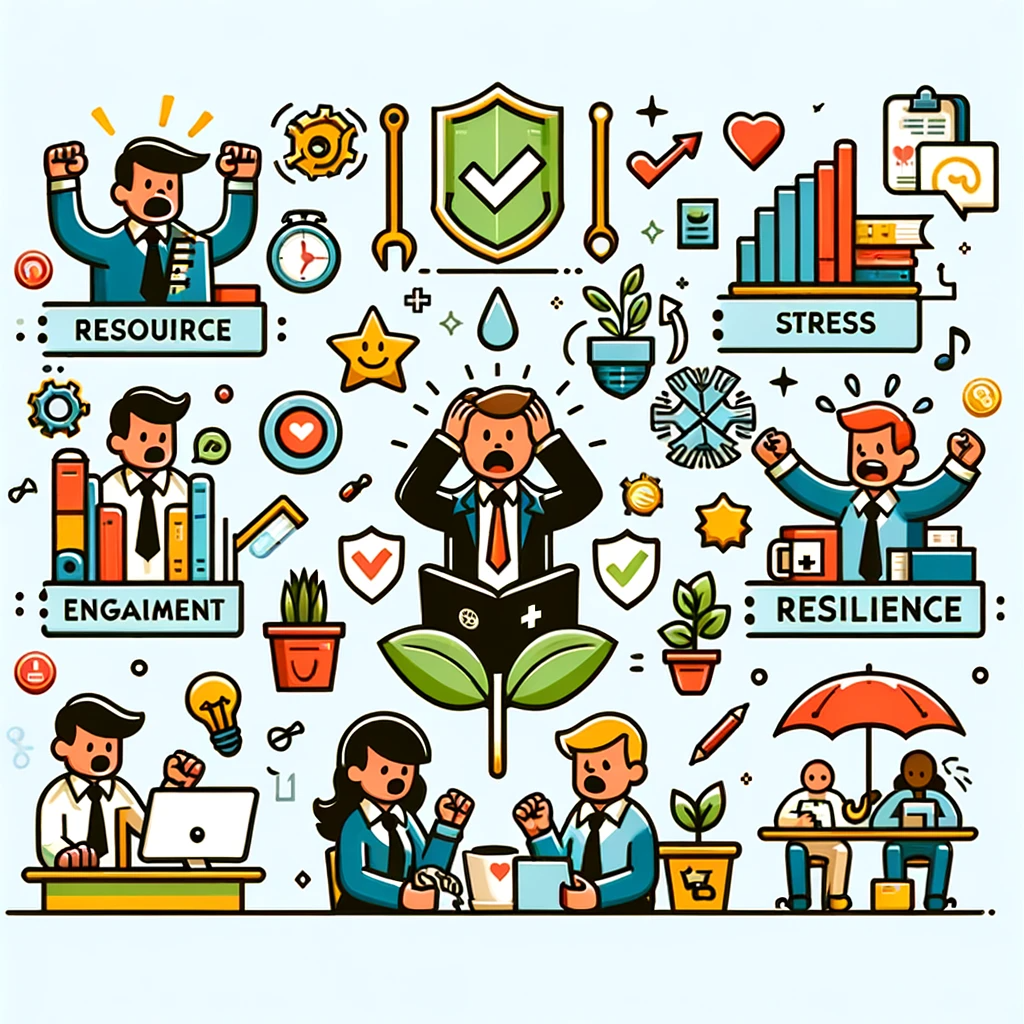Organizations are complex systems, driven by various factors including resources, both tangible and intangible. Understanding how these resources impact organizational behavior and stress is pivotal for improving workplace environments. The article “Conservation of Resources in the Organizational Context: The Reality of Resources and Their Consequences” offers valuable insights into these dynamics.
Understanding Conservation of Resources (COR) Theory
COR theory is an intriguing concept that explores how resources—or the lack thereof—shape our stress levels and behaviors in organizational settings. Imagine resources as a variety of tools, skills, relationships, and even personal traits that are vital for your survival and success. The theory suggests that stress occurs when these crucial resources are threatened, lost, or not adequately replenished after significant effort.
The Evolutionary Basis of Resource Management
Like other social animals, humans rely heavily on acquiring and conserving resources, including personal strengths and social bonds. Our ability to create complex tools and communicate through advanced language sets humans apart, aiding our survival and social connections. This natural inclination towards resource conservation significantly influences our behavior, particularly in stress response.
Cultural Perspectives on Resource Appraisal
Interestingly, how we appraise these resources varies across cultures, reflecting core universal elements among people. Health, well-being, family, self-esteem, and purpose are commonly valued resources, with their expression differing from one culture to another. This cultural lens is crucial in understanding how organizations globally interpret and manage resources.
Evaluating Resource Management in Programs
- Assessing Resource Allocation: Program evaluation should focus on distributing and utilizing resources. This includes examining whether programs are adequately equipped with the necessary tools, skills, and support systems.
- Measuring Stress and Resource Loss: Evaluators need to consider the impact of resource loss on employee stress levels. Programs that effectively mitigate resource loss can significantly reduce workplace stress, enhancing productivity.
- Tracking Resource Gain Cycles: Successful programs should foster environments where resource gains are noticeable and impactful. Evaluators should look for evidence of positive cycles of resource gain, such as increased employee engagement and resilience.
Organizational Development Strategies
- Building Resilient Structures: Organizations should develop structures that support resource conservation and resilience. This includes creating policies that protect against resource depletion, such as flexible work arrangements or mental health support systems.
- Fostering a Supportive Culture: Developing a culture that values and nurtures resources like social support, recognition, and personal development is crucial. Such a culture can prevent the rapid loss of resources and enhance overall organizational health.
- Training for Resource Management: Training programs focused on effective resource management, stress-coping strategies, and resilience building can be instrumental. These programs should be tailored to align with the organization’s specific resource dynamics.
Long-Term Development and Adaptation
Organizations need to adopt a long-term perspective on resource management, understanding that the conservation of resources is a dynamic and ongoing process. Adapting to changing environments, be it through technological advancements or shifts in workforce demographics, is essential for sustained organizational growth and health.
Encouraging Continuous Learning and Improvement
Organizational development is not a one-time task but a continuous process of learning and adaptation. Encouraging an environment of continuous improvement, where feedback is actively sought and used to refine programs and practices, is crucial.
The Global Context of COR Theory
The application and understanding of COR theory vary globally. In individualistic cultures, resources might be viewed more as a means to personal well-being, whereas collectivist cultures might focus on the broader societal impact of resource management.
Wrapping Up
COR theory offers a comprehensive framework for understanding stress and behavior in organizational contexts. Its principles are applicable across various cultures and can significantly influence organizational practices. We encourage readers to read the full article for a deeper understanding of this fascinating topic.

